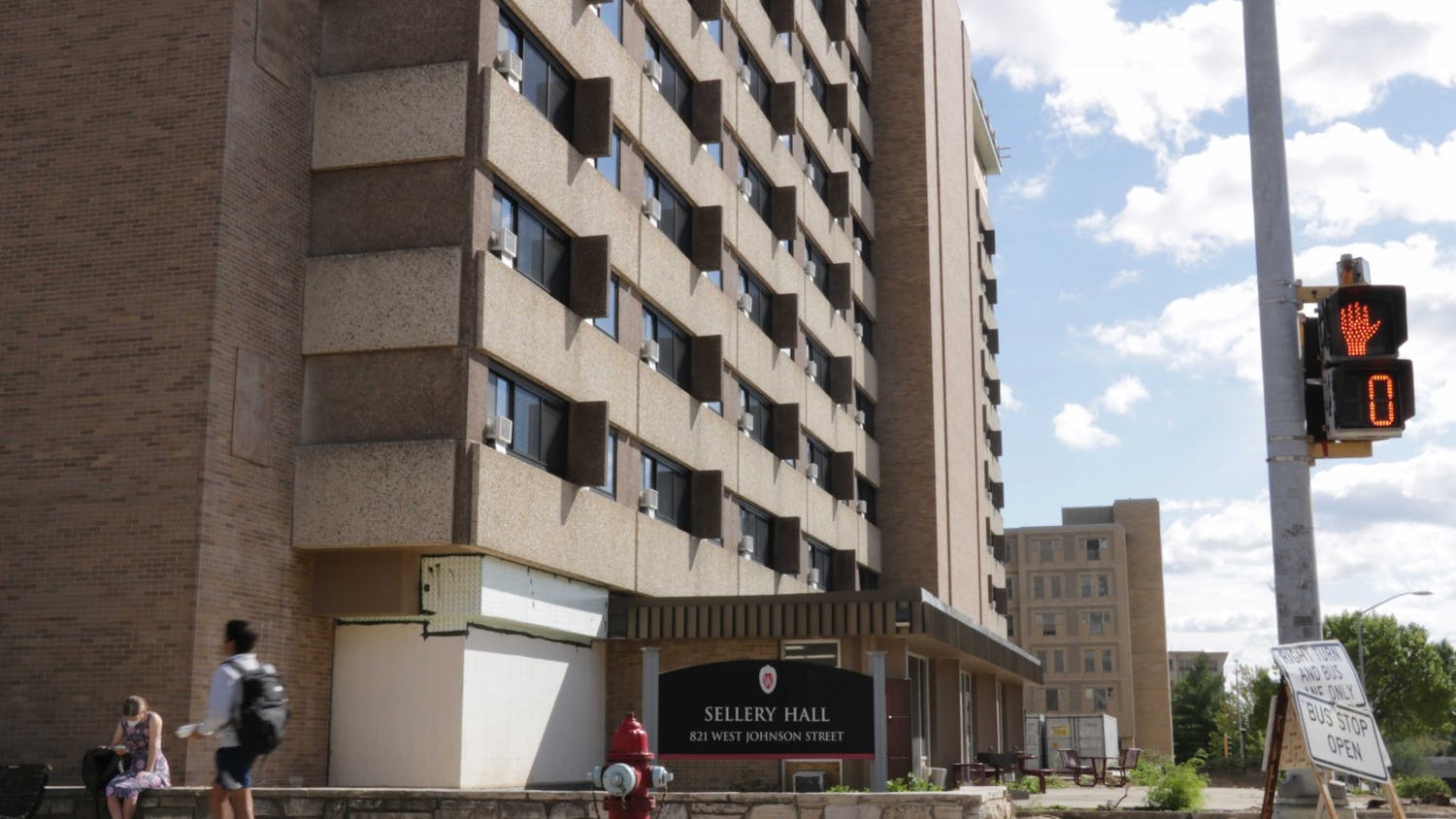As the COVID-19 pandemic rages on, local Madison businesses and their employees continue to struggle financially and are bracing for what could be a harsher winter.
Before Gov. Tony Evers issued his first “Safer at Home” order in March, members of Madison’s business community prioritized growth and development in the downtown area. Now, with new restrictions and adherence to social distancing protocols, both small and large businesses face constant pressure to stay open.
“Before the lockdown, things were moving along fast downtown. We were really focused on continuing to expand the Madison Night Market and working on our directory of businesses,” said Tiffany Kenney, Executive Director of the Business Improvement District, a membership-based organization consisting of 390 stores and restaurants in downtown Madison. “Our whole goal [was] to sell Downtown as a destination.”
In response to the guidelines and mandate that affected business operations, Kenney and the BID have shifted their attention away from new projects to focus on maintaining a baseline level of operations among member businesses that includes suggestions like closing their doors for days at a time, not following through with promotions they signed up for and keeping their windows boarded.
Kenney also cited a dire need to shore up lost revenue from decreased visitors to the downtown area by assisting businesses in developing and expanding their digital presence.
“We’ve focused a lot of our attention just helping businesses survive by moving their platforms online,” Kenney said.
Businesses suffer from COVID-19
These efforts have not been able to stop a rising number of vacancies in the downtown area. Before the pandemic began, the BID reported 32 vacant storefronts within its boundaries, reaching from the foot of State Street and around the Wisconsin state Capitol.
Now vacancies amount to 51 vacant storefronts within the district — a 59 percent increase. Notable businesses that have shut their doors for good include HopCat, Pizza Di Roma and the Under Armour store on State Street.
Kenny said a certain level of turnover occurs in any large commercial area, resulting in natural closures. The BID’s individual “healthy” vacancy rate, which measures the turnover, stood at six percent at the beginning of the pandemic, but now stands at 15 percent.
In addition to the permanent vacancies, another 14 member businesses within the BID closed their doors temporarily, with the intention of reopening. Eleven of those businesses are food vendors, restaurants or theaters.
While difficult times have fallen on the district as a whole, Kenney voiced particular concerns about a specific group of businesses — specialty shops, such as arts stores and boutiques. As browsing becomes more difficult for those who wish to shop in-person, Kenny also noted the hardships speciality shops face in transitioning their businesses to an online format due to capacity limits and customers' wariness toward shopping in-person.
“We really feel like our gift shops which have unique items, or one-of-a-kind items, are the ones who have most trouble downtown,” Kenny said.
B-Side Records, a music shop on State Street, saw its sales numbers significantly decrease following the onset of the pandemic, despite mandates like capacity limits having no effect on its business operations.
“I’d say sales have been down roughly 20 to 30 percent,” said owner Steve Manley. “I don’t have numbers, but that’s my guess.”
However, Rob Bowhan, owner of August, an apparel shop that sells an “amalgamation” of streetwear and sneakers among other items, pointed to his store’s success in online sales as other businesses continue to struggle.
“We had to figure out very quickly how we were going to utilize our e-commerce platform as a means to make up for lost sales,” Bowhan said. “I had started revamping our website in January, so when March hit, we had done all that heavy lifting. That was perfect timing.”
At the same time, closures and financial hardships have also struck businesses not associated with the BID.
Gil Altschul, local restaurateur and bar owner, reported five of his seven businesses had been forced to close their doors and lay off workers since the beginning of the pandemic while losing significant revenue in the process.
“I’m conditioned for how hard these things are. I’ve been dealing with putting out fires in restaurants for years,” Altschul said. “So this was just another hard thing to deal with. Now though, at this point, we’re down anywhere from 80 to 90 percent profit. Nobody expected things would last this long.”
Altschul elected to keep Lazy Jane’s Cafe and Grampa’s Pizzeria open and cited non-financial reasons, including maintaining a presence as his motivations for doing so.
“It’s clear that things are getting worse, and we’re gonna keep them open as long as we can cover our costs. We can stay relevant, and keep our key people employed,” Altschul said. “There’s intangible value to that, making sure people know we exist.”
While a combination of federal, state and city-level grants have been available to all businesses within Madison, the financial assistance serves merely as a stopgap for long-term financial consequences.
“We applied for Paycheck Protection Program (PPP) money, but we’re responsible for seven family businesses,” Altschul said. “We used those for salary, but the grants only go so far if you’re barely breaking even.”
Bowhan voiced his appreciation toward Madison Ald. Mike Verveer, District 4, for his efforts to secure funding for pandemic relief.
“The grants only go so far,” Bowhan said. “Not to look a gift horse in the mouth, but that’s not going to be the difference in shutting your doors … This sh** isn’t going anywhere.”
UW students caught in turmoil
The financial turmoil plaguing the local economy also caused a significant trickle down effect: UW-Madison students working in the Madison business community also experienced hardships in finding and keeping jobs.
Morgan Dooley, a junior at the UW-Madison, was laid off from her position at Colectivo Coffee’s capitol square location due to seasonal closures prompted by restrictions due to the pandemic. Employees were given roughly two weeks notice prior to the termination of their positions.
“They offered to give us positions at other shops around town and in Milwaukee, but there weren’t really that many available,” Dooley said.
Colectivo, unlike other small businesses in Madison, is part of a regional chain which has in recent years undergone considerable expansion.
According to a letter sent to laid-off employees by the coffee chain, it remains unclear when and if the capitol square location will reopen, as the company “found it necessary to implement a long-term reduction in workforce.”
At the same time, Olivia Keidl, a senior at UW, has been laid off twice since March, first from Bradbury’s Cafe, a BID member business which has not opened its doors since March. She also found herself unemployed after Porter Coffee, one of Altschul’s businesses, recently closed down for the season. Keidl worked as a chef and barista at both establishments.
“At Bradbury’s, we only had a couple days' notice before [it] close[d], and we did a bunch of sales in coffee and food to try and get rid of it,” Keidl said.
Keidl said that despite the abruptness of being laid off, Bradbury Cafe owner Trevor Gruhen showed compassion by extending her pay for a week after the cafe’s closure even though nobody could work.
After filing for unemployment, Keidl found work at Porter Coffee in mid-August. However, due to capacity limits which made indoor seating untenable at this one of Altschul’s businesses, he shut Porter’s doors for the season on Oct. 31.
Still, Keidl’s financial standing remains uncertain as she looks for somewhere else to work.
“[Gruhen] said that it could be anywhere from three weeks to six months,” Keidl said. “It's still not open. I’ve texted him every once and a while asking for updates but I don’t really know.”






